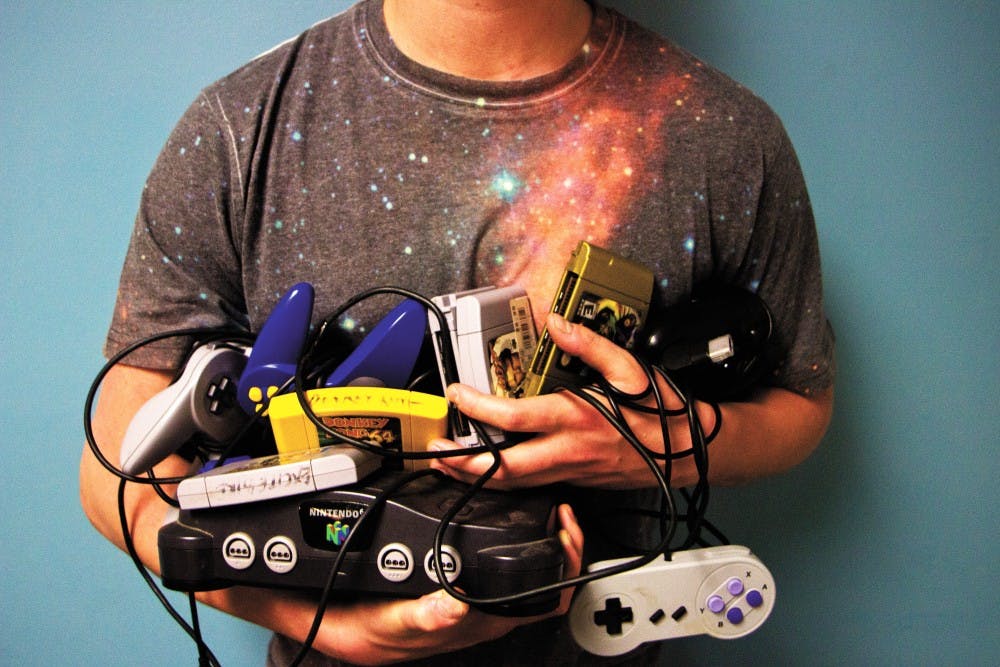Retro gaming still alive in the age of dowloads
Rediscovering old video games brings people together through a mutual nostalgia, something that may be lost as the changing process of buying games raises issues of access and ownership.
Tony Morelli, adviser for the Game Development and Design Club said it is difficult to dictate what is considered a retro video game in the first place. What may be considered a more modern game for an older-aged group of people may be considered a retro game for a group of younger people, making the archiving of classic video games and who has legal rights to them a grey area.
“People are starting to get into trouble because they’re archiving everything,” Morelli said. “What happens once Nintendo no longer exists or stop supporting those games? How do you play them 20 years from now? They may not be considered classic games because we might not be able to play them.”
Buying games used to be a simple matter of purchasing a physical product that was the owner's forever. Today, the process is much different due to monthly subscription fees and digital downloads.
Xbox has evolved to a point where some games now require a monthly membership or annual fees. Even PC games that used to be free that have switched to charging players to use their servers.
“What happens when you play a modern game 20 years from now? Will that be possible to do legally?” Morelli said. “There are games that people have converted to use on other consoles, where the original console no longer supports that game. So technically, having those games are illegal. But is it really hurting anybody?”
In addition to officially licensed downloadable games, there are online software emulators available for almost every major game console for free. Many of the emulated games are only available this way, though it's legality is questionable.
“Twenty years from now, talking about this generation of games is going to be strange because it’s unclear of who owns it and there are so many rules," Morelli said.

Despite the increased avenues for buying retro video games, there is still a market for the physical cartridges and equipment beloved by many.
Sandy Halasz, owner of Main Street Audio/Video, said students often come in her store looking for old games and electronics.
“We sell all sorts of electronics here, and the game consoles that we have are the older ones like the Sega and the first Playstation," Halasz said. "Kids come in to the store and see that we have those older games and start digging around.”
The games themselves connect students at Central Michigan University, like those in the Game Development and Design Club, who meet every Tuesday to appreciate games together.
“I didn’t know any of the people that I know in college as kids, but I can play a game with someone that they might have played when they were 5 and that I played when I was 7," said Southgate sophomore Joshua Simms, president of Game Development and Design Club. "It brings our childhoods together, even though we never knew each other.”
Stumbling upon retro video games is like recovering collecting memorabilia for Smith. He owns 16 different gaming consoles and an extensive collection of games.
“Going into old game stores just make me drool,” Simms said. “It’s as if nostalgia is its own drug. I love it."
Traverse City freshman Alyah Nadij said playing older games reminds her of family competition, mashing controls to be the best in the house.
“When I was younger, video games created a competitive edge in my house; an intense but fun one,” Nadij said.




